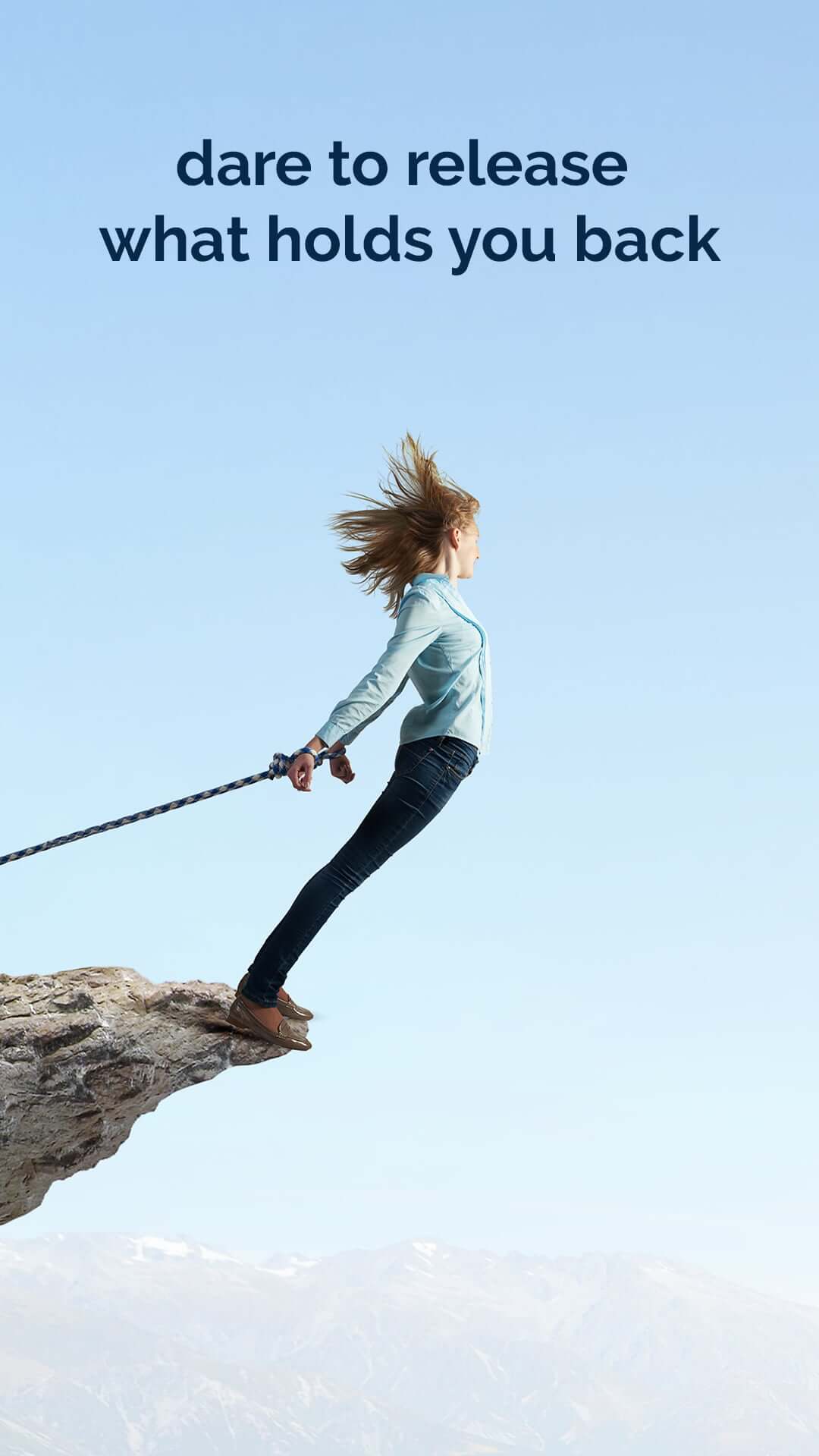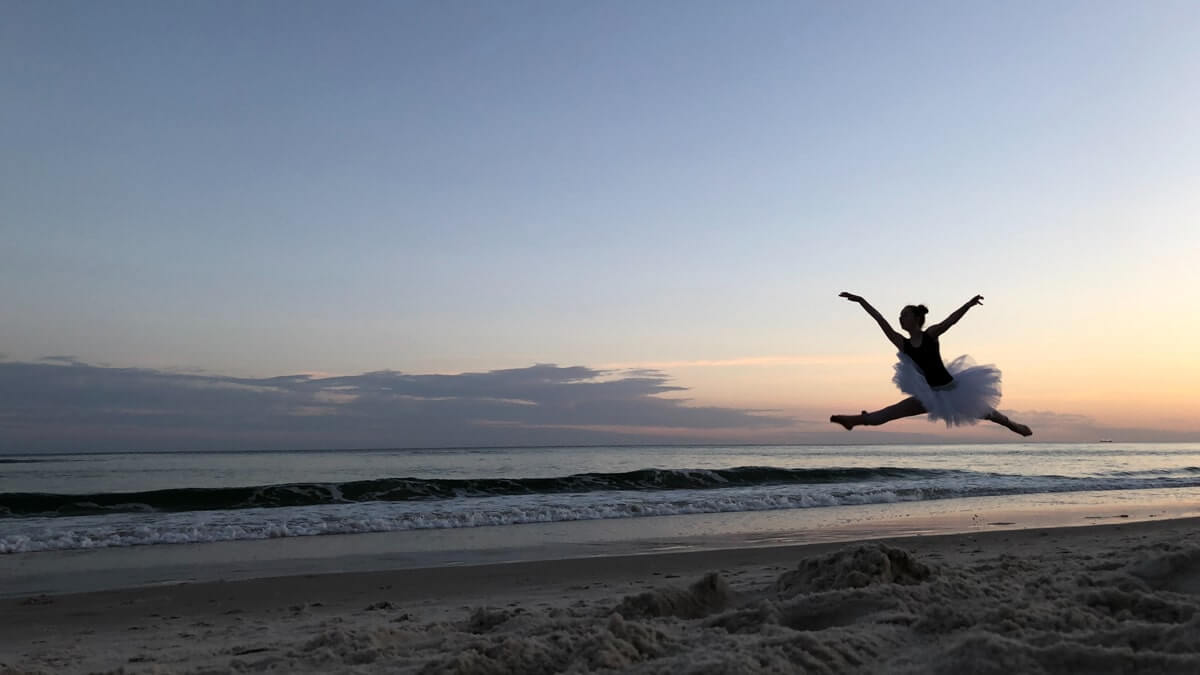An Invitation

Happiness is the ultimate goal of virtually all the decisions we make in life. So why aren’t we all happy all the time?
Although the answer is simple, it isn’t necessarily easy. If you want to change your life, first you must change your “reality”. Do you live in a reality where anything seems possible, despite difficulties, or in the opposite mindset, that very little seems possible? The lens through which you see the world defines the possibilities you believe in. What you choose to focus on shapes how you perceive and interpret your world. There are objective facts that can impact our lens too – illness, loss or financial constraints for example, but if you see even these as challenges, not impediments, then the possibility is they can be overcome. According to Harvard trained researcher Shawn Achor, before we can be happy or successful, we need to first develop the ability to believe that positive change is possible.
How can you change what you focus on so that you develop a reality that leans toward positivity, engagement and happiness?
According to the work of Martin Seligman Ph.D., the founder of Positive Psychology, the happiest people are those who have discovered their unique strengths and values and use those strengths and values for a purpose that is greater than their own personal goals.
Sadly, most of us have a difficult time knowing what our unique strengths or values are and how to engage them in ways that are purpose driven and enhance our belief in ourselves. It isn’t the lens we have been taught to look through. Even when we know, taking steps outside of our comfort zone can feel uncomfortable because most people are uncomfortable with change.
We often feel isolated from each other by the very feelings we have in common as human beings: including fear of change, fear of failure, rejection, disappointment, shame and a belief that we are not enough. In this isolation, we lose hope and continue to distance ourselves from the experiences that bring purpose and meaning to our lives. We lose connection with our own inner being, our creativity, flow, and intuition.
In a culture that is rampant with perfectionism and pleasing, and the constant pressure to conform and pretend to be who we are not, it feels easier sometimes to stay quiet, fit in and step back into the shadows. What if we embarrass ourselves? What if we lose money? What if we make the wrong choice? What if we open our hearts and are rejected? When we think about taking a risk our innate fight/flight response kicks in and demands that we stop. Yet we know that some of life’s most rewarding experiences come as a result of taking risks and going outside of our comfort zone.
When we examine our lives, isn’t it true that nothing is as painful as standing on the outside of our lives looking in, and wondering what might have been, had we found the courage to feel afraid and dare to take a risk anyway?

I dare you to take a risk now and choose to focus on the possibility that you have ‘work that has been put into heart”. Dare to be brave and believe that positive change is possible and that you can change the world you believe in.
Dare to lean into your life. To ask the question “how good can I stand it?”
Dare to believe in your skills and abilities, in your capacity for positive change, in your talents, strengths, and your creativity.
Dare to be tenacious, to not give up, to whether any obstacles and get back up after each time you fall (you will fall).
Dare to acknowledge and embrace your imperfections, they are opportunities for self-improvement. Prioritize learning over approval and value the learning process. Be a student.
Dare to cultivate a sense of purpose, awe, and wonderment, passion, and possibility. Dare to make love your religion.
Dare to trust your own wisdom. Cultivate your grit, determination, and perseverance. Be your own hero.
Dare to be kind to yourself, patient and understanding. Use the phrase “not yet” instead of “I can’t”. Like this: “I haven’t succeeded … yet!”
Dare to take ownership of your own attitude. Eradicate excuses, they are a weight that slows you down. Be in your integrity. Be authentic.
Dare to ask others for help. Seek mentorship. Find alliances. Trust you are worthy of support.
Dare to renovate your comfort zone. Be willing to take risks. Be bold. Be courageous.
Dare to consider the landscape of your life with compassion. Be present instead of perfect. Be true to yourself.
Dare to be inspiring. Be inspired by others. Make a statement. Declare yourself. Take a stand.
Dare to take ownership of your own life. You are the author of the story of your life. Keep writing until it is the story you want to live.
Dare to be a poet. A writer. A visionary. A healer. An artist. A helper. A collaborator. A connector. A guide.
Dare to be an activator. A catalyst. An accelerator. An innovator. An influencer. A beast. A creator. A powerhouse. A formidable force.

Seligman’s broad vision of well-being consists of five elements: positive emotion, engagement, positive relationships, meaning, and achievement. Attending to these five core elements of happiness and well-being will help you identify areas to become daring in:
Positive Emotion – meaning enjoying what you do and having a hopeful attitude about the future
Engagement – meaning feeling engrossed in and deeply absorbed by an experience
Positive Relationships – As human beings, we are wired to belong, connect, interact. It is in our connected relationships that we thrive.
Meaning – Finding meaning in life is what makes a person want to live. Meaning isn’t found in what we get, but in who we are.
Accomplishments – when we take pride in our accomplishments our self-esteem, our sense of worth and our confidence grows.
Happiness is an extension of well-being and is formed through our life experiences. It is an experience created through our process of living; it is not a destination. In order to release the fear that binds us, we must be larger than our anxiety and fear, braver than our shame and uncertainty. The Dalai Lama once said, “Happiness is not something ready-made. It comes from your own actions.” Happiness is active, it is lived. We must speak up and show up. Action is required. Movement is essential. Steps are necessary.
Are you willing to take steps toward your own freedom and happiness? Are you willing to be brave and find a way to cultivate, express and share your unique gifts and allow those gifts to be used as the Universe intends?
Dare.
– Theodore Roosevelt
Dare Posts
An Invitation

Happiness is the ultimate goal of virtually all the decisions we make in life. So why aren’t we all happy all the time?
Although the answer is simple, it isn’t necessarily easy. If you want to change your life, first you must change your “reality”. Do you live in a reality where anything seems possible, despite difficulties, or in the opposite mindset, that very little seems possible? The lens through which you see the world defines the possibilities you believe in. What you choose to focus on shapes how you perceive and interpret your world. There are objective facts that can impact our lens too – illness, loss or financial constraints for example, but if you see even these as challenges, not impediments, then the possibility is they can be overcome. According to Harvard trained researcher Shawn Achor, before we can be happy or successful, we need to first develop the ability to believe that positive change is possible.
How can you change what you focus on so that you develop a reality that leans toward positivity, engagement and happiness?
According to the work of Martin Seligman Ph.D., the founder of Positive Psychology, the happiest people are those who have discovered their unique strengths and values and use those strengths and values for a purpose that is greater than their own personal goals.
Sadly, most of us have a difficult time knowing what our unique strengths or values are and how to engage them in ways that are purpose driven and enhance our belief in ourselves. It isn’t the lens we have been taught to look through. Even when we know, taking steps outside of our comfort zone can feel uncomfortable because most people are uncomfortable with change.
We often feel isolated from each other by the very feelings we have in common as human beings: including fear of change, fear of failure, rejection, disappointment, shame and a belief that we are not enough. In this isolation, we lose hope and continue to distance ourselves from the experiences that bring purpose and meaning to our lives. We lose connection with our own inner being, our creativity, flow, and intuition.
In a culture that is rampant with perfectionism and pleasing, and the constant pressure to conform and pretend to be who we are not, it feels easier sometimes to stay quiet, fit in and step back into the shadows. What if we embarrass ourselves? What if we lose money? What if we make the wrong choice? What if we open our hearts and are rejected? When we think about taking a risk our innate fight/flight response kicks in and demands that we stop. Yet we know that some of life’s most rewarding experiences come as a result of taking risks and going outside of our comfort zone.
When we examine our lives, isn’t it true that nothing is as painful as standing on the outside of our lives looking in, and wondering what might have been, had we found the courage to feel afraid and dare to take a risk anyway?

I dare you to take a risk now and choose to focus on the possibility that you have ‘work that has been put into heart”. Dare to be brave and believe that positive change is possible and that you can change the world you believe in.
Dare to lean into your life. To ask the question “how good can I stand it?”
Dare to believe in your skills and abilities, in your capacity for positive change, in your talents, strengths, and your creativity.
Dare to be tenacious, to not give up, to whether any obstacles and get back up after each time you fall (you will fall).
Dare to acknowledge and embrace your imperfections, they are opportunities for self-improvement. Prioritize learning over approval and value the learning process. Be a student.
Dare to cultivate a sense of purpose, awe, and wonderment, passion, and possibility. Dare to make love your religion.
Dare to trust your own wisdom. Cultivate your grit, determination, and perseverance. Be your own hero.
Dare to be kind to yourself, patient and understanding. Use the phrase “not yet” instead of “I can’t”. Like this: “I haven’t succeeded … yet!”
Dare to take ownership of your own attitude. Eradicate excuses, they are a weight that slows you down. Be in your integrity. Be authentic.
Dare to ask others for help. Seek mentorship. Find alliances. Trust you are worthy of support.
Dare to renovate your comfort zone. Be willing to take risks. Be bold. Be courageous.
Dare to consider the landscape of your life with compassion. Be present instead of perfect. Be true to yourself.
Dare to be inspiring. Be inspired by others. Make a statement. Declare yourself. Take a stand.
Dare to take ownership of your own life. You are the author of the story of your life. Keep writing until it is the story you want to live.
Dare to be a poet. A writer. A visionary. A healer. An artist. A helper. A collaborator. A connector. A guide.
Dare to be an activator. A catalyst. An accelerator. An innovator. An influencer. A beast. A creator. A powerhouse. A formidable force.

Seligman’s broad vision of well-being consists of five elements: positive emotion, engagement, positive relationships, meaning, and achievement. Attending to these five core elements of happiness and well-being will help you identify areas to become daring in:
Positive Emotion – meaning enjoying what you do and having a hopeful attitude about the future
Engagement – meaning feeling engrossed in and deeply absorbed by an experience
Positive Relationships – As human beings, we are wired to belong, connect, interact. It is in our connected relationships that we thrive.
Meaning – Finding meaning in life is what makes a person want to live. Meaning isn’t found in what we get, but in who we are.
Accomplishments – when we take pride in our accomplishments our self-esteem, our sense of worth and our confidence grows.
Happiness is an extension of well-being and is formed through our life experiences. It is an experience created through our process of living; it is not a destination. In order to release the fear that binds us, we must be larger than our anxiety and fear, braver than our shame and uncertainty. The Dalai Lama once said, “Happiness is not something ready-made. It comes from your own actions.” Happiness is active, it is lived. We must speak up and show up. Action is required. Movement is essential. Steps are necessary.
Are you willing to take steps toward your own freedom and happiness? Are you willing to be brave and find a way to cultivate, express and share your unique gifts and allow those gifts to be used as the Universe intends?
Dare.
– Theodore Roosevelt




